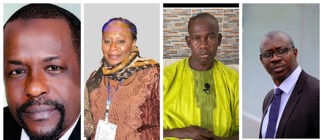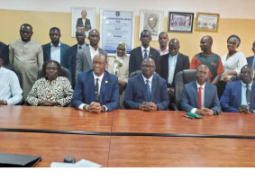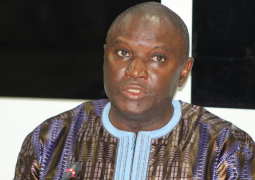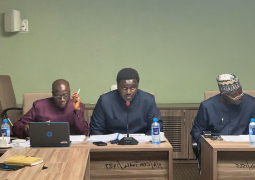
The UDP in their four consolidated suits alleged that the appointments of all the four defendants in each of the four cases contravened Section 166 and 170 of the 1997 Constitution, General Order 3104 of the General Orders for the Public Service of the Gambia and the Gambia Foreign Service Rules were thus “unconstitutional and null and void”.
The first defendant, Sheikh Tijan Hydara, a politician and founding member and leader of the Gambia Alliance for National Unity (GANU), formed an alliance with the National People’s Party (NPP) to support the president in his re-election bid.
After the holding of the National Assembly Elections in 2022, the president appointed Sheikh Tijang Hydara as Ambassador of The Gambia to Cuba.
The plaintiffs contended that his appointment as ambassador while holding an office as a leader of GANU contravened section 170 of the 1997 Constitution.
However, in the statement of case, the defendant denied the accusation, saying he resigned from and ceased to be the leader of GANU following his appointment as an ambassador.
The court held that no evidence was led by any party, either orally or documentary.
In the suit against Fatoumatta Jahumpa, Ceesay who was a member of the executive committee of the Alliance for Patriotic Re-Orientation and Construction (APRC), she formed an alliance with the NPP to support President Barrow in his re-election bid.
After holding the National Assembly Elections in 2022, she was appointed as High Commissioner accredited to the Republic of South Africa.
However, the plaintiffs contended that her appointment while holding an office in the APRC contravened the 1997 Constitution and that she had indicated her support of a political party and openly campaigned against other political parties in support of the NPP.
The court held that no evidence was presented to the court to establish that Jahumpa was holding office in a registered political party and that no evidence was also presented to the court to show the date of appointment of Jahumpa as High Commissioner to South Africa.
A judgment was also delivered in the case of the UDP and Lamin Bojang, a politician and leader of the Alliance for National Re-Orientation and Development (ANRD).
It would be recalled that Lamin Bojang formed an alliance with the NPP to support President Barrow in his re-election bid.
After the National Assembly elections, Bojang was appointed as Defence Attache in the Embassy of the Gambia in Guinea Bissau, and the UDP claimed that Bojang’s appointment while holding office in the ANRD contravened the constitution.
The court held that no evidence was led by both parties, adding that the plaintiffs were relying entirely on the admissions made by the defendants to prove their cases.
In the case of the UDP and Ousman Rambo Jatta, a politician and member of the governing body of the Alliance for Patriotic Re-Orientation and Construction (APRC), the UDP claimed that Rambo Jatta also formed an alliance with NPP and was later appointed as deputy High Commissioner while he was holding an office as deputy party leader in the APRC.
The plaintiffs stated that his appointment contravened the 1997 Constitution and in his capacity as deputy party leader, he made violent and outrageous verbal attacks on other political parties and their leaders.
The Supreme Court held that the plaintiffs (Hon. Madi K. Ceesay and the UDP) have not established balance of probability on the date of the appointment of Rambo as Deputy High Commissioner while he was holding an office in a political party.
The court concluded that the plaintiffs had in none of the suits established their case against the defendants on the balance of probability to be entitled to the reliefs sought. Therefore, the court made orders of non-suit in each suit.
The court further noted that the parties’ statements of the case and the applicable law, most especially the Constitution and the Election Act, could have been better assisted by the plaintiffs in their efforts to satisfactorily resolve the critical issues placed before them.





